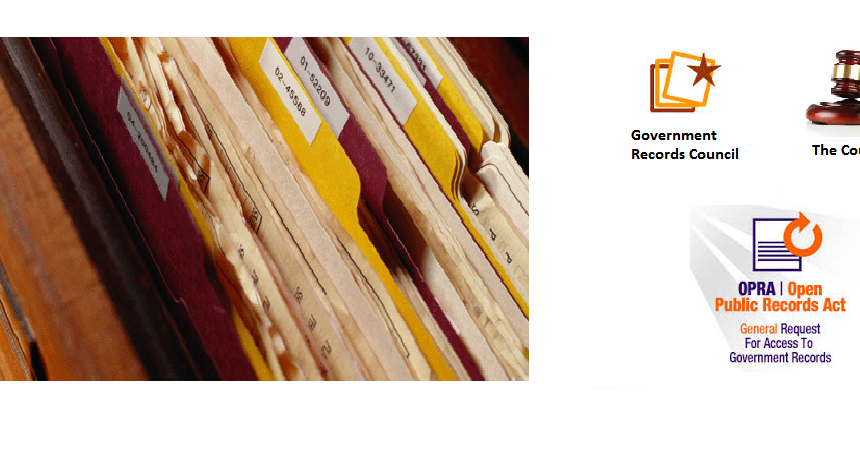The GRC is holding its annual OPRA seminar in Trenton on Wednesday, August 12. NJFOG is attending.
According to OPRA, one of the missions of the Government Records Council (“GRC”) is to educate the public about OPRA. Most years since it was created, the GRC has held an annual seminar that is open to the public. (The GRC makes several other OPRA presentations around the State during the year, but these are not always open to the public.) Since the GRC has begun offering professional continuing education credits for its annual seminar, the audience has shifted from records requestors to clerks and attorneys.
During this year’s seminar, it’s important to listen for what the GRC will and won’t talk about.
For example, will they discuss recent cases, such as the multiple rulings this year that only a records requestor has the right to bring an OPRA lawsuit? Will they say anything about the OPRA amendments now in the Legislature, in particular the proposal that the GRC has to adjudicate complaints within a time limit?
And how much time will be devoted to how the GRC and the Courts differ? This is an important topic, and there are several important differences that the public should know about.
The biggest difference between the GRC and the Courts is that the GRC has declined to make decisions based on the common law right of access, which is an alternative method of gaining access to records. Anyone who has a strong common law right of access claim must bring that claim in court (and thus pay the $250 filing fee) rather than file with the GRC for free. The decision to file with the GRC means you’re giving up important rights, and a complete discussion of OPRA should always include discussion of the common law right of access.
Another important difference is that court cases must be filed within 45 days after the denial, while there is no time limit for filing with the GRC. To the extent that the difference is not made clear, some may not know the short time limit they have to file an OPRA case in court.
Also, the GRC and courts have from time to time disagreed about whether certain records are public. For example, the GRC has denied access to records created before the start of an internal affairs investigation, where the records subsequently became part of that investigation. Courts have held that records that were public prior to an investigation remain public during an investigation. The GRC has also treated special education settlement agreements as non-public, while courts have granted broad, nearly unfettered access to settlement agreements.
Finally, the GRC reaches all of its final decisions without oral argument. In our opinion, this method of deciding cases deprives all sides of the chance to persuade the GRC or for the GRC to get clarification of the parties’ arguments. Allowing oral argument would make the decision-making process more fair.
We hope that during its seminar the GRC educates the public about these and other important differences between filing a GRC complaint and filing an OPRA lawsuit in court.

